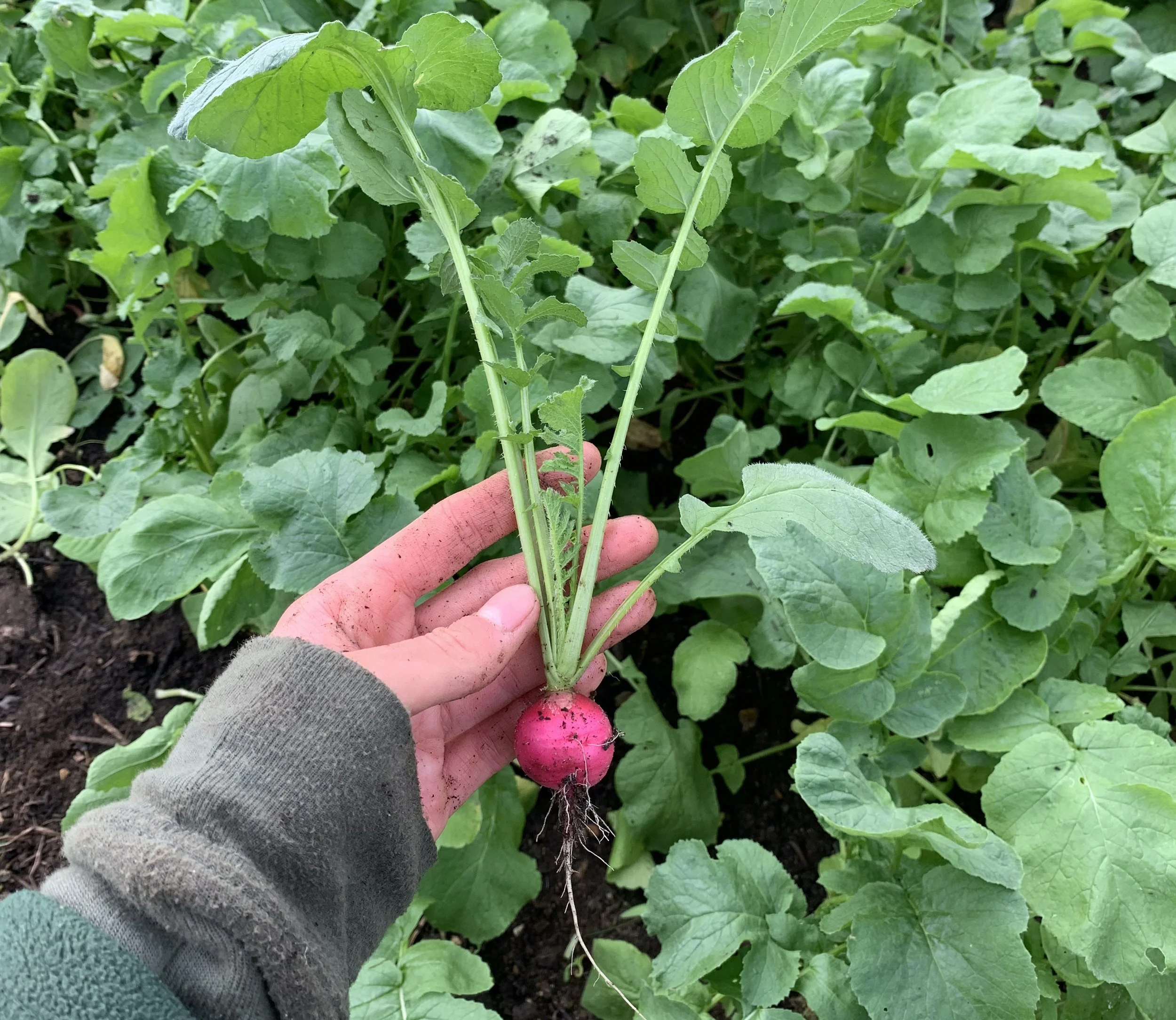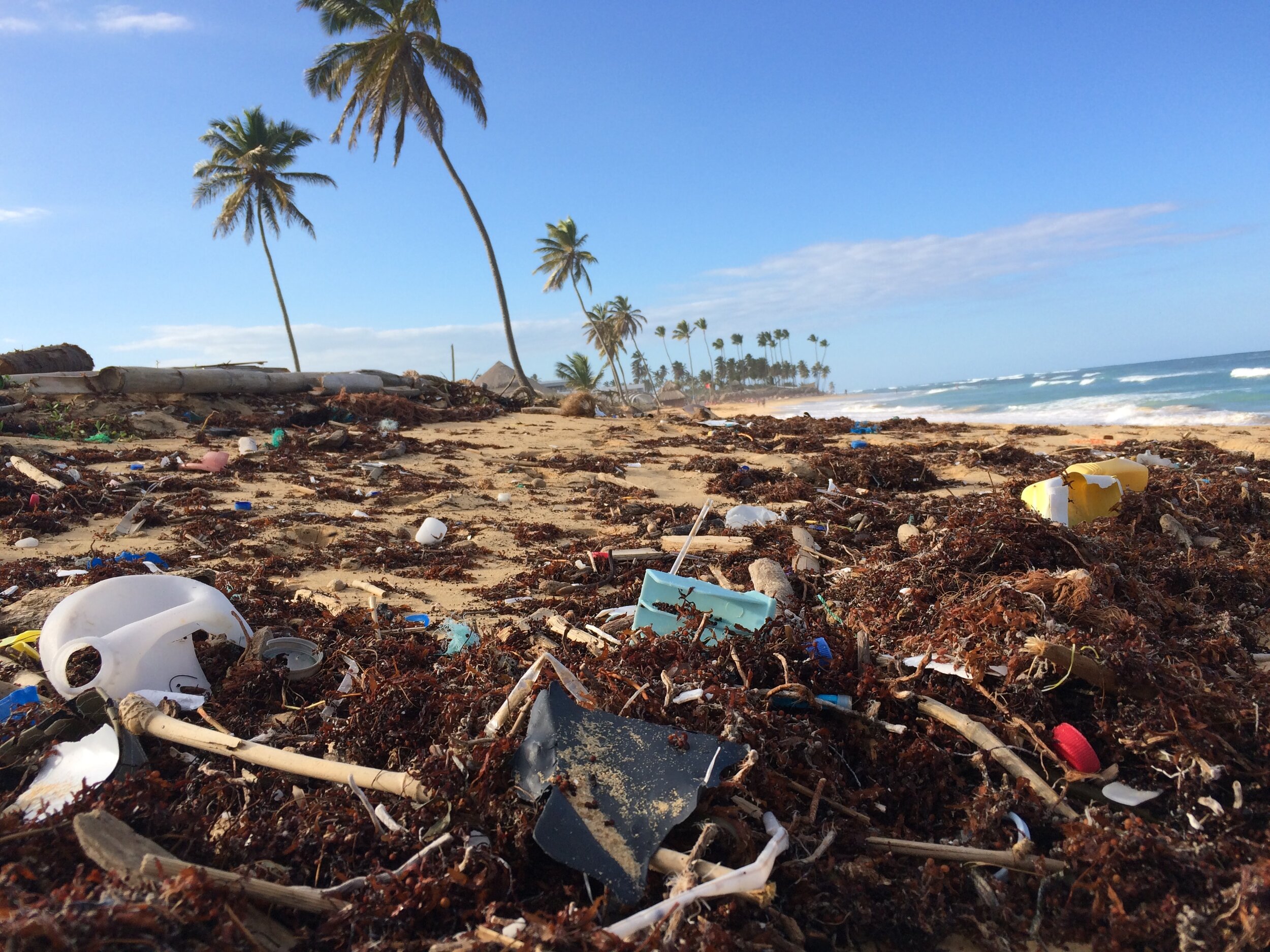In the middle of the Pacific Ocean lies an island twice the size of Texas that is made entirely of wasted plastic. You may have heard of the island dubbed as the ‘Great Pacific garbage patch’ or the ‘plastic trash vortex’. At first glance the issues surrounding this island’s existence are quite apparent; underwater footage of the island shows sea creatures wrapped in plastic, their forms morphed by the plastic waste debris. Then comes the wider message that this island portrays, it is a microcosm of a far larger problem that supposedly begins with disregard and a lack of understanding.
In today’s globalised, consumerist culture understandings of environmentalism often lead back to a ‘man vs. nature’ scenario. That in order to find our path back to restoring some hope regarding climate change we must ‘seek nature’ - a narrative that further suggests a good vs. evil tale of the city competing with the great wilderness.
Although I am a great advocate for re-connecting and re-claiming our wildness, this understanding of environmentalism seems to have forgotten that we are nature; we are not an entirely separate entity. Climate change is not a doomsday battle between man and the elements. It is a sheer reminder of how interconnected we are with all that we connect with, and are often totally disconnected from. Progression does not have to mean destruction; it does not have to come at a detrimental cost. Nature is in our cities as it is in our wilderness, it is in the homes we have built and the children we have raised, and we cannot ignore our connected fate.
On New Zealand’s South Island lies a small harbour town called Akaroa. The waters near Akaroa are the home of Hector’s dolphins, the smallest and rarest dolphins in the world. These dolphins resemble mini orca’s and glide through the water in sizeable pods. While not only being the rarest breed of dolphin on the planet, the adult population of this species is estimated at only 8,000; with the rarer breed of hector’s dolphins, Maui Dolphin’s, estimated at only 55.
It is animals like these that are highly at risk of being deformed or poisoned by the toxic chemicals that plastic waste distributes. To simply stand and watch these mammals thriving in their natural habitat is enough to make you realise that the ocean is not our territory to abuse; it is the home of creatures that we may never even lay our eyes upon and many that we are yet to discover. Yet, marine species’ are not the only ones that will have to live with the consequences of our waste; chemicals from the plastic that we dump in our oceans are also contaminating the food and water that we consume.
The decaying process of plastic takes thousands of years. When plastic gets into the ocean it traps the chemicals that run off from industry, such as fire retardants and pesticides. The island of plastic in the Pacific Ocean is one of five islands formed from plastic waste that have been discovered; other garbage patches have been found in the Indian and Atlantic oceans. 580,000 pieces of plastic waste per square kilometre reside in the Atlantic Ocean.
Due to the vast expanse of the deep blue it is easy to ignore the implications that this waste is having on the underwater eco system, as with much of the implications of human action, the consequences are ‘out there’ in a place that we only see, read or hear about through a medium that we quickly forget. Yet, as animals ingest stray pieces of plastic the toxicity infects their entire body; larger plastic elements can also sit in their stomach until they die or choke to death. The chemicals that are trapped in plastic waste are stored in the bodies of fish as they pollute surrounding waters and make their way into our food system. Fish are not only eaten by humans but are also ground up and fed to cattle, resulting in these polluting chemicals also finding their way into meat products.
As more waste is dumped into the ocean at an alarming rate these issues will only become more apparent, no doubt leading to detrimental consequences for human health. As the narrative around climate change progresses we need to rethink the rhetoric; we as a community on planet earth need to understand that only when we join forces with nature and realise that environmentalism is not man vs. nature, are we truly ready to make real change in the face of global warming. This goes beyond simply appreciating the wild around us; it means building, creating and living in a way that recognises our place in the earth’s natural ecosystem. Modernisation does not need to be at war with the wilderness; as we seek to progress we have the chance to do so in partnership with nature, instead of at the expense of our planet. Plastic waste is just one aspect of the detrimental effect that our negligent choices are having, but it clearly shows that we are not immune to the negative consequences of our actions.








